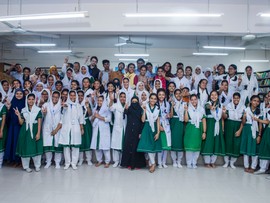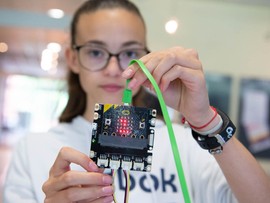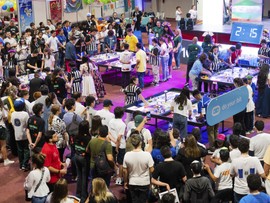micro:bit in Libraries with STEMUP Sri Lanka
Using libraries in Sri Lanka to create a new digital community of young people who love the BBC micro:bit
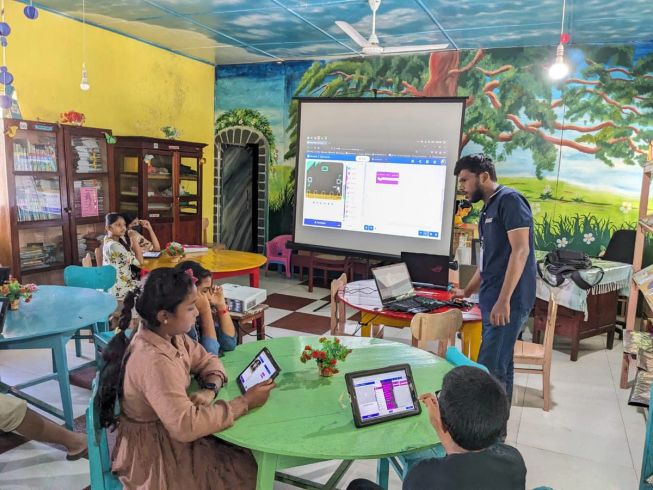
In May 2024, the STEMUP Educational Foundation launched the micro:bit in Libraries programme across all of Sri Lanka. This is the culmination of years of work by STEMUP, to build a new community of young micro:bit enthusiasts, ready to code and create a brighter and more inclusive future.
A strong partnership
The STEMUP Educational Foundation began collaborating with the Micro:bit Educational Foundation in 2016. This strong partnership paved the way for the official introduction of the micro:bit into Sri Lanka's national education curriculum, in cooperation with the National Institute of Education and Ministry Of Education.
Whilst this was an amazing success, they still found that students could not always get ready access to micro:bits in school. So how could the enthusiasm generated in the classroom be continued at home? Devices are not always accessible to all children, particularly those who are from lower socioeconomic backgrounds. STEMUP sought to increase access to micro:bits, specifically to empower disadvantaged children with the tools and knowledge needed to thrive in the digital age.
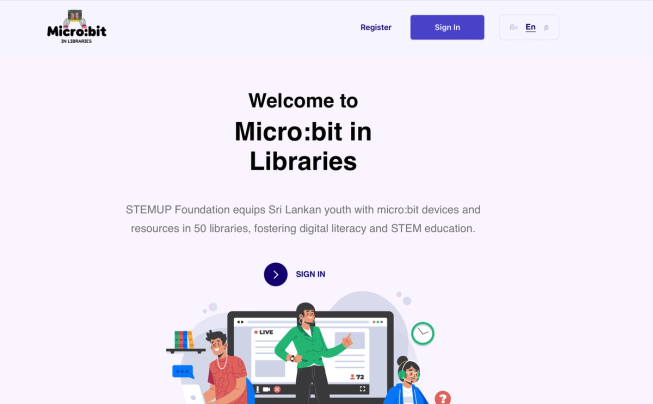
Testing the library network
Libraries are already a place where anyone can borrow books for free. These community hubs are found all over Sri Lanka, so are a ready-made network to attract young people looking to learn. Taking inspiration from previous micro:bit projects with Libraries NI and British Council, STEMUP connected with two public libraries in Columbo and Gampaha, to pilot the micro:bit in Libraries program.
Students can borrow a micro:bit starter kit and guidebook, just like they would a regular book, use it, and return it after the standard library loan period. Alongside this they developed an online platform with video courses available in Sinhala, English, and Tamil for further learning. All this provided free, easy access to micro:bits and all the support a student would need to open up a micro:bit world of possibilities.
The programme received excellent feedback from young people and parents. Using the library system meant that young people could borrow the equipment and guidance easily and for free, whereas they would not have been able to afford to buy their own device. The libraries were also pleased with the impact, as it brought a new generation of people into library spaces, whereas before most young people would just access books digitally from home. The physicality of the micro:bit meant that libraries could also put on programmes of events and workshops to help children, to enhance the learning too.
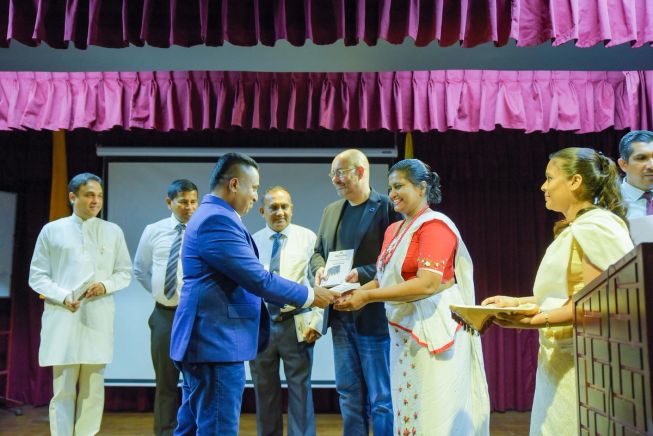
Rolling out nationally
Motivated by this success, STEMUP raised the funds to expand the initiative by partnering with F5. They worked with the National Library of Sri Lanka to extend the program to 50 additional public libraries nationwide, providing each with 10 devices. This means that every district in Sri Lanka has 2 libraries that provide access to micro:bits, with the potential to benefit an average of 25,000 students annually. As Micro:bit Educational Foundation’s Community Partner in Sri Lanka, STEMUP have now started the roll-out to libraries.

We are proud to support the micro:bit in Libraries initiative, which aligns with our mission to promote educational equity and lifelong learning. By providing access to cutting-edge technology and resources, we are empowering students across Sri Lanka to develop essential digital skills and become the innovators of tomorrow. Already, we have witnessed the enthusiasm and creativity sparked in young minds through this initiative. We are excited about the future possibilities and the positive impact this will continue to have on our nation's youth.

Director General of the National Library and Documentation Services Board of Sri Lanka (NLDSB)
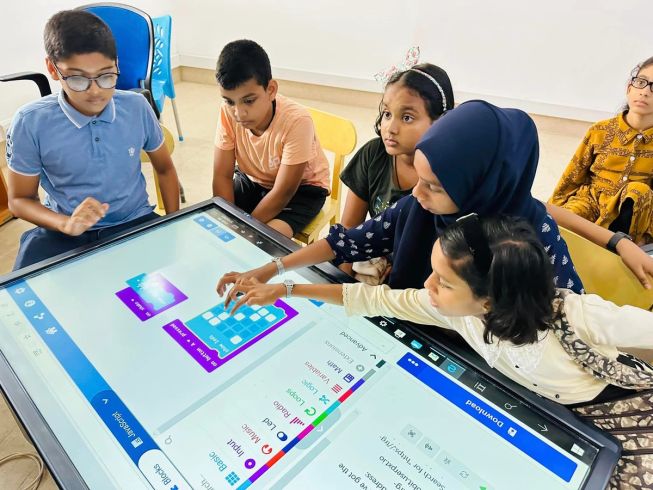
Impact
- 500 devices distributed across 50 libraries, accompanied by 50 guidebooks
- micro:bits distributed to 2 libraries per district, covering all 25 districts of Sri Lanka
- Online platform with video courses available in Sinhala, English, and Tamil for further learning
- Potential to benefit an average of 25,000 students annually, assuming each device is used by 10 students per week

We are so honored to support the remarkable work of STEMUP Educational Foundation as they provide the critical tools, resources, and opportunities for those interested in pursuing STEM to become the innovators and problem solvers of our future.

Carina Weyer, Senior Global Impact Manager, F5
Future expansion
STEMUP Educational Foundation are an entirely volunteer-run organisation, but have big plans to keep building the momentum they have gathered so far. To keep the micro:bit in Libraries programme running smoothly, they need support to cover additional devices as back up for the future, ensuring that libraries always have a steady flow of devices to lend out.
And how can coding become even more accessible? By bringing more devices into schools. If the micro:bit in Libraries programme can be supported to bring devices into school libraries as well, then even more children would be able to access this amazing resource.

The micro:bit is not just a device, it’s a whole ecosystem. It’s the ideal partner to help us ignite curiosity and foster a love for coding and IoT among young learners, especially those from underserved communities. We are thrilled to launch the micro:bit in Libraries project with the Micro:bit Educational Foundation, a significant step towards democratizing access to technology and education for students across Sri Lanka.

Prabhath Mannapperuma, Founder of STEMUP Educational Foundation
